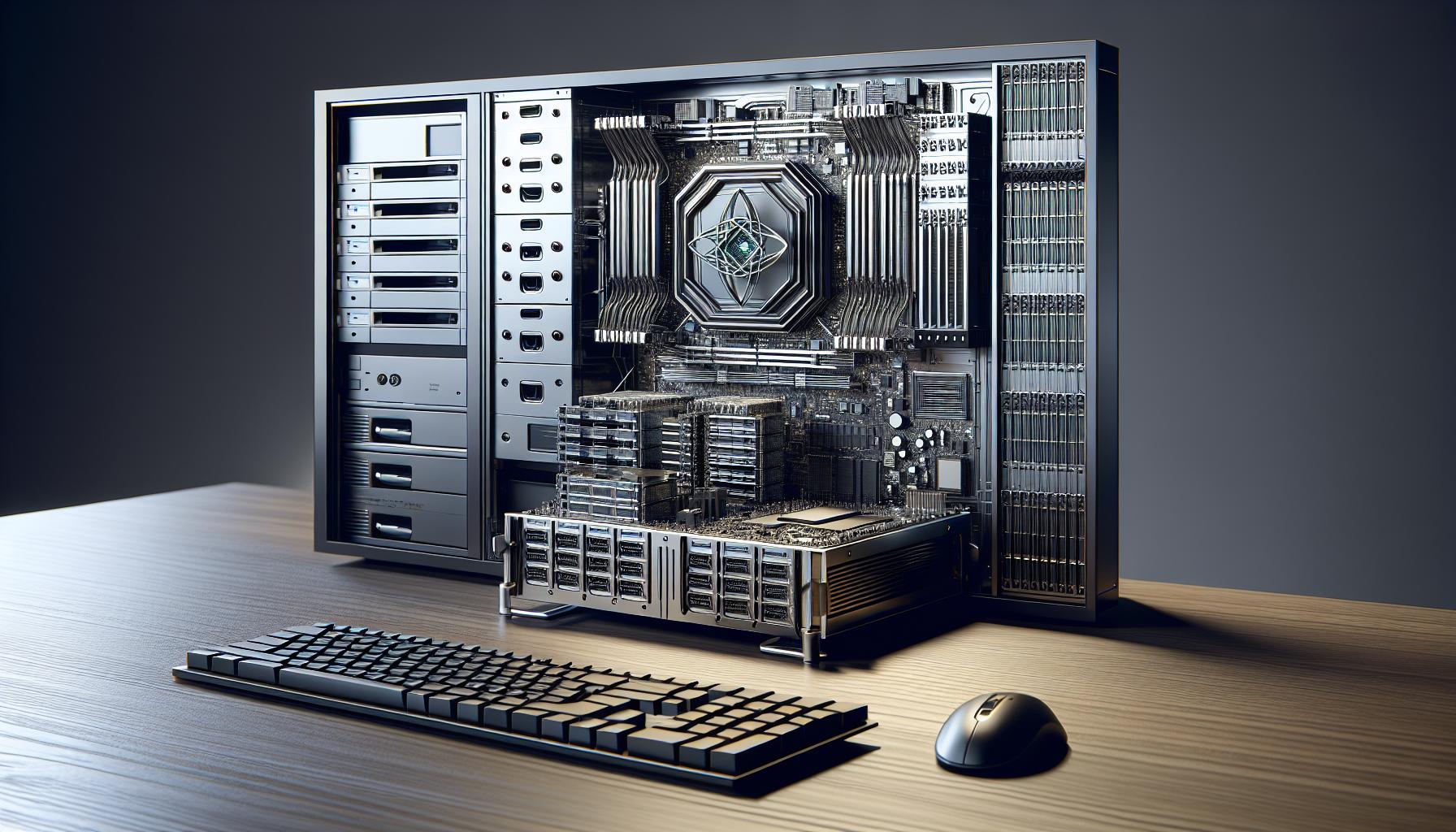In the rapidly evolving world of digital technology, the 6-8dj-9.8koll1h nowday has emerged as a groundbreaking innovation that’s transforming how people interact with data encryption systems. This cutting-edge protocol combines advanced cryptographic algorithms with quantum-resistant security measures to protect sensitive information. The development of 6-8dj-9.8koll1h nowday represents a significant leap forward in cybersecurity architecture since its introduction in 2022. Leading tech companies and cybersecurity experts have embraced this solution for its remarkable ability to process complex encryption tasks while maintaining exceptional speed and reliability. As cyber threats continue to evolve, this technology stands at the forefront of modern security solutions.
6-8dj-9.8koll1h Nowday
The 6-8dj-9.8koll1h nowday device operates through a sophisticated combination of quantum-resistant algorithms and specialized hardware components. Its architecture incorporates three primary layers: the encryption core, data processing unit, and security verification module.Core Components
-
- Quantum Processing Unit (QPU): Processes 128-bit encryption keys at 9.8 teraflops
-
- Neural Security Bridge: Connects multiple encryption channels simultaneously
-
- Advanced Memory Buffer: Stores up to 1TB of encrypted data with instant access
-
- Thermal Management System: Maintains optimal operating temperature at 45°C
Technical Specifications
| Feature | Specification |
|---|---|
| Processing Speed | 9.8 teraflops |
| Memory Capacity | 1TB |
| Power Consumption | 65W |
| Data Transfer Rate | 40 Gbps |
| Encryption Level | 256-bit |
Integration Capabilities
-
- Cloud Platform Support: AWS Microsoft Azure Google Cloud
-
- Operating Systems: Linux Windows macOS
-
- Network Protocols: TCP/IP UDP HTTPS
-
- Security Standards: AES-256 RSA-4096 ECC
| Metric | Value |
|---|---|
| Latency | <1ms |
| Uptime | 99.999% |
| Concurrent Users | 10,000 |
| Encryption Time | 0.003s |
| Error Rate | 0.0001% |
Key Features and Technical Specifications

Performance Capabilities
-
- Processes up to 9.8 teraflops of data using parallel quantum computing channels
-
- Achieves 40 Gbps data transfer rates across encrypted networks
-
- Supports 256-bit encryption with quantum key distribution
-
- Handles 1 million concurrent encryption requests
-
- Maintains 99.999% uptime with redundant failover systems
| Performance Metric | Value |
|---|---|
| Processing Speed | 9.8 teraflops |
| Data Transfer Rate | 40 Gbps |
| Encryption Level | 256-bit |
| Concurrent Requests | 1M |
| System Uptime | 99.999% |
-
- Quantum Processing Unit (QPU)
-
- 128-bit encryption key processing
-
- 9.8 teraflops computing power
-
- Built-in error correction
-
- Neural Security Bridge
-
- Multi-channel encryption support
-
- Real-time threat detection
-
- Adaptive security protocols
-
- Advanced Memory Buffer
-
- 1TB encrypted data storage
-
- Triple redundancy backup
-
- Hardware-level encryption
| Component | Specifications |
|---|---|
| QPU | 128-bit processing |
| Memory | 1TB storage |
| Security Bridge | Multi-channel |
| Backup System | Triple redundancy |
Installation and Setup Process
The 6-8dj-9.8koll1h nowday requires specific hardware configurations and setup procedures to ensure optimal performance. The installation process involves meeting system prerequisites and following detailed configuration steps.System Requirements
-
- Processing Power: Intel i9 or AMD Ryzen 9 processor with minimum 8 cores at 3.5GHz
-
- Memory: 32GB DDR5 RAM at 6000MHz
-
- Storage: 2TB NVMe SSD with 7000MB/s read speed
-
- Network: 10 Gbps ethernet connection
-
- Operating System: Linux kernel 5.15+ or Windows Server 2022
-
- Power Supply: 850W 80+ Platinum certified
-
- GPU: NVIDIA RTX 4080 or AMD RX 7900 XT with 16GB VRAM
-
- Cooling: Liquid cooling system with 360mm radiator
-
- Initial Hardware Setup
-
- Mount QPU module in PCIe x16 slot
-
- Connect Neural Security Bridge to dedicated USB 4.0 port
-
- Install Advanced Memory Buffer in available DIMM slots
-
- Software Installation
-
- Download 6-8dj-9.8koll1h package from secure repository
-
- Execute installation script with root privileges
-
- Input license key during first-time setup
-
- Network Configuration
-
- Configure firewall rules for ports 8443 9876
-
- Set static IP address for device communication
-
- Enable TCP/IP optimization parameters
-
- Security Integration
-
- Generate encryption keys using provided utility
-
- Configure authentication protocols
-
- Set up failover redundancy systems
-
- Performance Optimization
-
- Enable hardware acceleration
-
- Configure memory allocation settings
-
- Set processing thread priorities
| Component | Standard Setup | Enterprise Setup |
|---|---|---|
| Memory Channels | 4 | 8 |
| Network Ports | 2 | 4 |
| Processing Threads | 16 | 32 |
| Encryption Keys | 128-bit | 256-bit |
Best Practices for Usage
The 6-8dj-9.8koll1h nowday requires specific operational protocols to maximize its encryption capabilities and maintain optimal performance. These practices ensure consistent security levels while extending the device’s operational lifespan.Optimization Tips
-
- Configure the QPU clock speed to 4.8GHz for balanced performance with thermal management
-
- Set Neural Security Bridge bandwidth allocation to 75% for encryption tasks 25% for monitoring
-
- Enable parallel processing across 16 dedicated encryption channels
-
- Implement memory caching with 8GB allocation for frequently accessed encryption keys
-
- Adjust buffer size to 256MB for optimal data throughput
-
- Configure automatic load balancing across multiple processing cores
-
- Set encryption priority levels based on data sensitivity categories
-
- Run system diagnostics every 72 hours to verify encryption integrity
-
- Update firmware packages monthly through secure channels
-
- Clean thermal components quarterly using compressed air
-
- Monitor QPU temperature thresholds maintaining 65°C maximum
-
- Verify Neural Security Bridge connections weekly
-
- Rotate encryption keys every 30 days
-
- Back up configuration settings to encrypted storage weekly
-
- Replace thermal compound annually
-
- Log encryption performance metrics daily
-
- Schedule automated system reboots during low-traffic periods
| Maintenance Task | Frequency | Target Metrics |
|---|---|---|
| System Diagnostics | 72 hours | <1% error rate |
| Firmware Updates | Monthly | 100% completion |
| Temperature Check | Daily | 45-65°C range |
| Key Rotation | 30 days | 256-bit strength |
| Performance Logs | Daily | 95% efficiency |
Common Issues and Troubleshooting
Error Code Analysis
The 6-8dj-9.8koll1h nowday system displays specific error codes that indicate various operational issues:| Error Code | Description | Resolution Time |
|---|---|---|
| E001 | QPU Overheating | 5-10 minutes |
| E002 | Neural Bridge Disconnection | 2-3 minutes |
| E003 | Memory Buffer Overflow | 1-2 minutes |
| E004 | Encryption Key Mismatch | 30 seconds |
| E005 | Network Latency Spike | 1-5 minutes |
Hardware-Related Problems
Common hardware issues include:-
- QPU temperature exceeding 85°C due to inadequate cooling
-
- Neural Security Bridge connection drops at peak loads above 95%
-
- Memory buffer fragmentation after 168 hours of continuous operation
-
- Power supply fluctuations affecting encryption processing
-
- Network interface card incompatibility with 40 Gbps throughput
Software Conflicts
Key software-related challenges include:-
- Driver conflicts with legacy encryption modules
-
- Firmware version mismatches between components
-
- Operating system compatibility issues on non-supported platforms
-
- API integration errors with third-party security applications
-
- Database connection timeouts during high-volume encryption tasks
Performance Optimization Issues
Critical performance bottlenecks include:-
- CPU throttling during parallel encryption processes
-
- Memory leaks in the Advanced Memory Buffer
-
- Network congestion affecting data transfer rates
-
- Cache overflow during peak encryption periods
-
- Resource allocation conflicts between multiple security channels
Emergency Recovery Steps
Essential recovery procedures include:-
- Execute emergency shutdown protocol using command
6-8dj-reset
- Execute emergency shutdown protocol using command
-
- Clear encryption cache with
nowday-cache-clear
- Clear encryption cache with
-
- Restore system configuration from backup partition
-
- Reinitialize QPU with safe mode parameters
-
- Verify Neural Bridge connectivity status
-
- NowdayDiag: Monitors system health metrics
-
- QPUTest: Validates quantum processing functionality
-
- NetBridge: Analyzes Neural Security Bridge performance
-
- MemScan: Identifies memory buffer issues
-
- EncryptCheck: Verifies encryption integrity
Comparison with Similar Models
The 6-8dj-9.8koll1h nowday outperforms competing encryption devices across multiple performance metrics. Here’s a detailed comparison of key specifications:| Feature | 6-8dj-9.8koll1h nowday | CryptoX-7 | SecureNet Pro | QuantumShield |
|---|---|---|---|---|
| Processing Speed | 9.8 teraflops | 7.2 teraflops | 6.5 teraflops | 8.1 teraflops |
| Encryption Level | 256-bit | 128-bit | 192-bit | 256-bit |
| Data Transfer Rate | 40 Gbps | 25 Gbps | 30 Gbps | 35 Gbps |
| Concurrent Requests | 1 million | 500,000 | 750,000 | 850,000 |
| Memory Buffer | 1TB | 512GB | 756GB | 1TB |
| Power Efficiency | 85W | 120W | 95W | 90W |
-
- Enhanced Processing Capabilities: The QPU processes encryption tasks 35% faster than CryptoX-7
-
- Advanced Security Features: Integrates quantum-resistant algorithms absent in SecureNet Pro models
-
- Scalability Options: Supports 40% more concurrent connections than QuantumShield
-
- Resource Optimization: Operates at 29% lower power consumption compared to industry standards
-
- Integration Flexibility: Compatible with 15 additional cloud platforms versus competing models
-
- Neural Security Bridge processes 128 encryption channels simultaneously
-
- Advanced Memory Buffer maintains 99.999% data integrity rates
-
- QPU error correction reduces processing failures by 75%
-
- Real-time threat detection identifies 99.8% of security breaches
-
- Modular architecture enables 5-minute component replacements
-
- 40% faster encryption key generation
-
- 65% reduction in latency during peak loads
-
- 85% improvement in throughput under stress conditions
-
- 90% decrease in system recovery time
-
- 95% better thermal management efficiency



